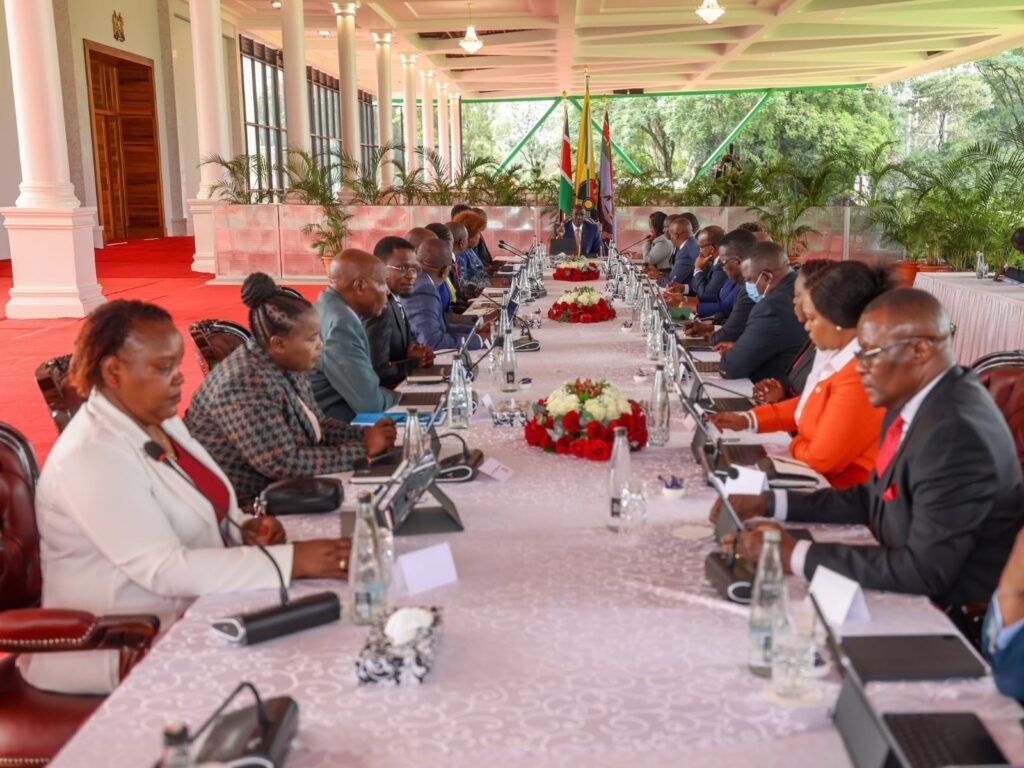Known as the Treasury Single Account, the proposal, once implemented will have a far-reaching impact on commercial banks that hold money on behalf of various ministries and agencies
The Cabinet has approved the setting up of a single government bank account in what promises to be a far-reaching resolution that is set to affect commercial banks.
A Cabinet brief from State House, Nairobi, said the move is meant to enhance public finance management by increasing transparency in how public money is handled.
The Cabinet underscored the importance of what will now be known as the Treasury Single Account (TSA) that will serve both the national and county governments.
According to the Cabinet brief shared with the Nairobi Business Monthly, the new system is meant to simplify government banking, create visibility of government cash resources and increase transparency in government cash management.
“Additionally, the new system will help control expenditure and minimise fragmentation of government accounts in commercial banks,” the note said. “The structure of the TSA will include the National Exchequer Account, the TSA Sub-Account and the County Revenue Fund”.
President Ruto, who chaired yesterday’s meeting said: “Government funds are banked in commercial bank accounts and individuals keep earning interest. This must stop. All the benefits of public funds must only accrue to the people of Kenya and no one else.”
His declaration is set to have far-reaching ramifications for various banks that have hitherto been banking for various government Ministries, Departments and Agencies (MDAs), some of which have multiple accounts in different commercial banks.
This will mop up large piles of cash that the MDAs have been holding in banks, which use the funds to lend to private borrowers, including companies. It is also likely to affect the cash reserves that banks hold, potentially exposing those will weak liquidity ratios to potential risks.
In a related development, the Cabinet also approved the implementation of the Electronic Government Procurement (e-GP) for both national and county governments.
“This move aims to enhance fairness, equity, transparency, competitiveness and cost-effective public procurement, potentially reducing costs by between 10 and 15 per cent,” the Cabinet brief said, adding that once implemented, the system will save the government Sh90 billion every year in public procurement expenditure.
“The Cabinet’s decision to implement electronic procurement is rooted in the understanding that digital transformation is essential for transparency, accountability and the establishment of an open marketplace for procurement agencies. Electronic procurement will benefit the government, suppliers and the public through transparent information flow on expenditure”.
Also given the go-ahead in Cabinet today are Public-Private Partnership (PPP) regulations whose aim is to improve the structure and performance of PPP projects.
The regulations provide guidelines for planning, procurement, management and monitoring PPP projects, but will have to be taken to Parliament for approval before they can be rolled out.
In another landmark decision, the Cabinet also approved a Bill that will pave the way for the transformation of Kenya Railways into a regulator to oversee the transformation of large swathes of “idle Kenya Railway land” into railway cities. According to the government, this will fortify Kenya as a regional logistics hub.
The move comes amid reports that Tanzania is testing East Africa’s first electric train, a move that could increase its competitiveness in transporting goods and people.
Said the brief: “The Cabinet approved the Railway Amendment Bill 2024 that aims at initiating new ways of running railways and separating the business of freight, commuter and land development”.
Should the Bill become law, Kenya Railways land in various towns across the country will be used to develop railway cities as is happening in Nairobi in partnership with the government of the UK.
“The Bill proposes that the private sector, investors and even county governments run the railway cities. In such cases, Kenya Railways will become a regulator,” said the Cabinet brief.


